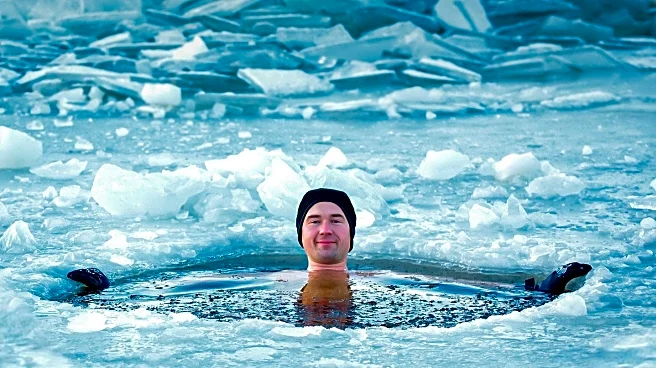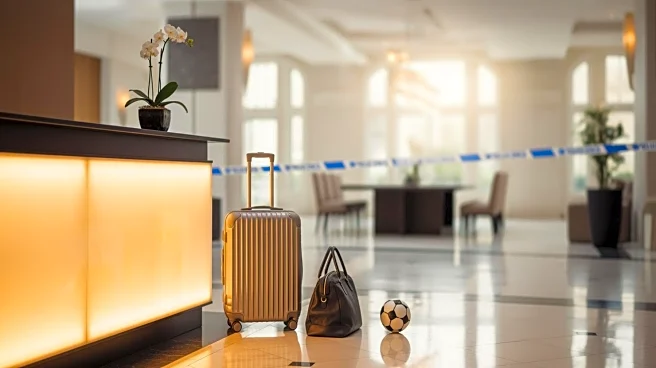What is the story about?
What's Happening?
Sebbi, a springer spaniel, has retired after playing a crucial role in Lord Howe Island's conservation efforts. The island, located over 700km northeast of Sydney, is a biodiversity hotspot with more than 200 endemic species. Sebbi was part of the original biosecurity dog team that helped the island achieve a rodent-free status in 2023. Rodents, introduced via ships in the 19th and early 20th centuries, had devastated the island's unique flora and fauna, leading to the extinction of several native species. The detection dogs have been central to eradication efforts, which began in the 1970s with the removal of other invasive species like cats, pigs, and goats. Since the arrival of the dogs in 2017, there has been a strong population growth of native species, including the Lord Howe woodhen and currawong. The removal of rodents also allowed the little mountain palm to regenerate, restoring a key part of the island's ecosystem.
Why It's Important?
The successful eradication of rodents on Lord Howe Island is a significant conservation milestone, demonstrating the effectiveness of using detection dogs in biosecurity efforts. This achievement has led to the recovery of native species and the restoration of the island's ecosystem, highlighting the importance of preserving biodiversity. The initiative serves as a model for other regions facing similar challenges with invasive species. The growth of native species populations not only enhances the island's ecological health but also boosts its appeal as a tourist destination, potentially benefiting the local economy. The conservation success underscores the critical role of innovative approaches in environmental protection and the potential for similar strategies to be applied elsewhere.
What's Next?
With Sebbi's retirement, the mantle has passed to the current detection dog squad, including Tilly, Sooty, and Willow. These dogs continue to conduct inspections on the island and at Port Macquarie, the main departure point for cargo, ensuring no invasive pests hitch a ride. The team expects a new dog to join them by the year's end, continuing the legacy of conservation efforts on the island. The ongoing monitoring and protection of the island's ecosystem will be crucial in maintaining its rodent-free status and supporting the recovery of native species.
Beyond the Headlines
The eradication of rodents on Lord Howe Island not only benefits the local ecosystem but also raises broader ethical and environmental considerations. The use of detection dogs highlights the importance of humane and effective methods in conservation efforts. The initiative reflects a growing recognition of the interconnectedness of ecosystems and the need for comprehensive strategies to address environmental challenges. The success on Lord Howe Island may inspire similar efforts globally, promoting biodiversity conservation and sustainable practices.
















